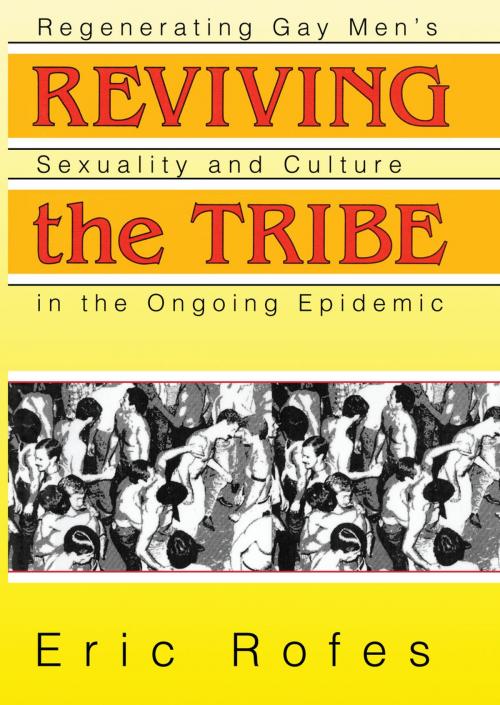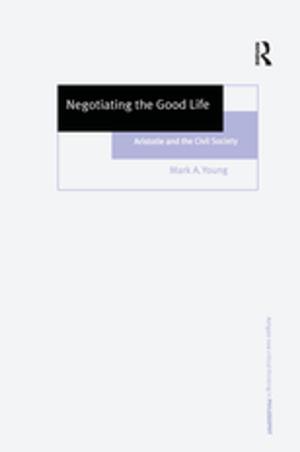Reviving the Tribe
Regenerating Gay Men's Sexuality and Culture in the Ongoing Epidemic
Nonfiction, Reference & Language, Law, Ethics, Education & Teaching, History| Author: | Eric Rofes | ISBN: | 9781317763840 |
| Publisher: | Taylor and Francis | Publication: | December 2, 2013 |
| Imprint: | Routledge | Language: | English |
| Author: | Eric Rofes |
| ISBN: | 9781317763840 |
| Publisher: | Taylor and Francis |
| Publication: | December 2, 2013 |
| Imprint: | Routledge |
| Language: | English |
Reviving the Tribe creates a rich and brutally honest portrait of contemporary gay men’s lives amidst the seemingly endless AIDS epidemic and offers both autobiographical self-examination and a relentless critique of current sexual politics within the gay community. Fearlessly confronting the horrors experiences by surviving gay men without giving way to hopelessness, denial, or blame, Reviving the Tribe offers an inspiring blueprint for the gay community which faces a continuing spiral of disaster.
In Reviving the Tribe, Author Eric Rofes argues that a return to the interrupted agenda of gay liberation may provide long-term motivation to keep gay men alive and spur rejuvenation of new generations of gay culture. By interweaving social history, psychology, anthropology, epidemiology, sociology, feminist theory, and sexology with his own journey through the epidemic, Rofes provides a moving and compelling argument for stepping out of the “state of emergency” and embracing a life beyond disease. He boldly offers a plan for community regeneration focused on restoring mental health, reclaiming sexuality, and mending the social fabric of communal gay life.
Rofes asks unspoken questions lurking in gay men’s minds and suggests answers to these questions, hitting such controversial topics as:
-
gay men’s sex cultures of the 1970s
-
why “educated” gay men continue to become HIV-infected
-
changing forms of gay masculinity
-
the opening of new sex clubs and bathhouses
-
leaving “rage activism” behind
-
links between the Holocaust and AIDS
-
unacknowledged roots in the feminist movement of gay men’s AIDS response
-
mass denial of chronic trauma among gay men
The refusal to confront the ever-intensifying manifestations of AIDS has seriously endangered the foundation of contemporary gay communities. Rofes argues that many gay men suffer from the ”disaster syndrome,” a psychologically determined response that defends individuals against being overwhelmed by traumatic experience. In Reviving the Tribe, he provides a radical critique of contemporary gay political culture and suggests alternatives which offer the opportunity to face history, grapple with decimation, and regenerate communal life.
Cautioning that an honest analysis of recent gay history and urban cultures promises neither to stop gay men’s suffering nor to end continuing HIV infections, Reviving the Tribe provides gay men with a clear lens through which they might scrutinize their lives, come to a new understanding of the epidemic’s impact on their generation, and redirect activism. This courageous and inspiring work brings Rofes’commanding intellect and twenty years of grassroots gay activism to bear on the challenging task of reconstructing gay life in the new mellennium.
Reviving the Tribe is filled with insight of special interest to gay men, lesbians involved in the mixed lesbian/gay movement, sociologists, public health workers, psychologists, counselors, sex educators, religious leaders, and AIDS prevention policymakers searching for fresh vision.
Reviving the Tribe creates a rich and brutally honest portrait of contemporary gay men’s lives amidst the seemingly endless AIDS epidemic and offers both autobiographical self-examination and a relentless critique of current sexual politics within the gay community. Fearlessly confronting the horrors experiences by surviving gay men without giving way to hopelessness, denial, or blame, Reviving the Tribe offers an inspiring blueprint for the gay community which faces a continuing spiral of disaster.
In Reviving the Tribe, Author Eric Rofes argues that a return to the interrupted agenda of gay liberation may provide long-term motivation to keep gay men alive and spur rejuvenation of new generations of gay culture. By interweaving social history, psychology, anthropology, epidemiology, sociology, feminist theory, and sexology with his own journey through the epidemic, Rofes provides a moving and compelling argument for stepping out of the “state of emergency” and embracing a life beyond disease. He boldly offers a plan for community regeneration focused on restoring mental health, reclaiming sexuality, and mending the social fabric of communal gay life.
Rofes asks unspoken questions lurking in gay men’s minds and suggests answers to these questions, hitting such controversial topics as:
-
gay men’s sex cultures of the 1970s
-
why “educated” gay men continue to become HIV-infected
-
changing forms of gay masculinity
-
the opening of new sex clubs and bathhouses
-
leaving “rage activism” behind
-
links between the Holocaust and AIDS
-
unacknowledged roots in the feminist movement of gay men’s AIDS response
-
mass denial of chronic trauma among gay men
The refusal to confront the ever-intensifying manifestations of AIDS has seriously endangered the foundation of contemporary gay communities. Rofes argues that many gay men suffer from the ”disaster syndrome,” a psychologically determined response that defends individuals against being overwhelmed by traumatic experience. In Reviving the Tribe, he provides a radical critique of contemporary gay political culture and suggests alternatives which offer the opportunity to face history, grapple with decimation, and regenerate communal life.
Cautioning that an honest analysis of recent gay history and urban cultures promises neither to stop gay men’s suffering nor to end continuing HIV infections, Reviving the Tribe provides gay men with a clear lens through which they might scrutinize their lives, come to a new understanding of the epidemic’s impact on their generation, and redirect activism. This courageous and inspiring work brings Rofes’commanding intellect and twenty years of grassroots gay activism to bear on the challenging task of reconstructing gay life in the new mellennium.
Reviving the Tribe is filled with insight of special interest to gay men, lesbians involved in the mixed lesbian/gay movement, sociologists, public health workers, psychologists, counselors, sex educators, religious leaders, and AIDS prevention policymakers searching for fresh vision.















